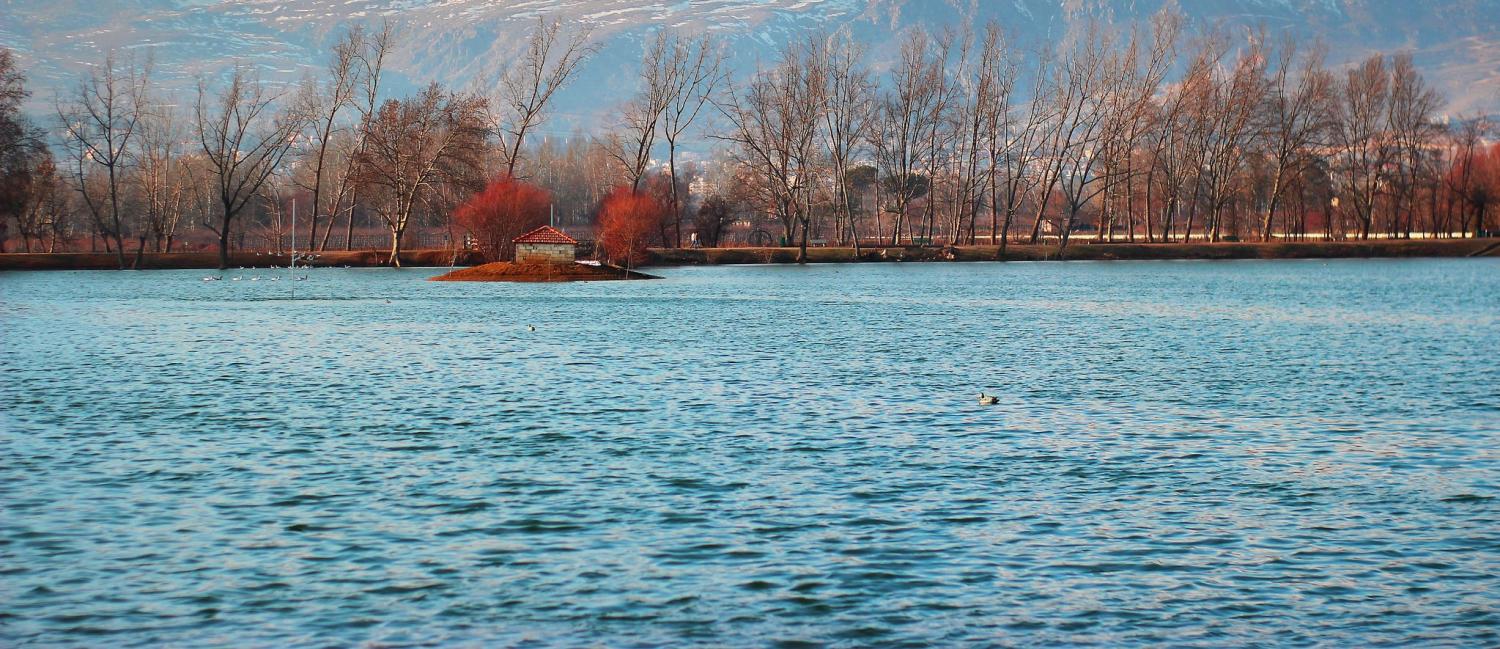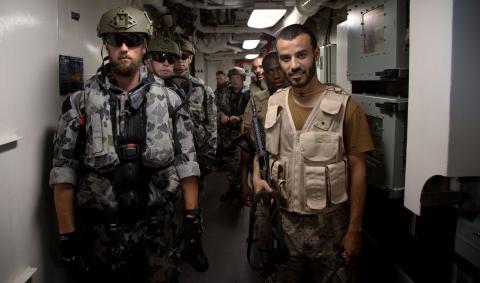The Lebanese civil war was, at heart, a battle over contested conceptions of the Lebanese state. Was it to be secular and West-aligned, or closer to the (predominantly Muslim) Arab world?
This question has never really been settled. But these days, rather than fighting it out on the streets of Beirut, discussions about the nature of the state are held behind the closed doors of the Lebanese Parliament. Political discussions have changed since the civil war ended – they rarely include the plight of the Palestinians or Arab unity. Rather, today they focus on how to maintain the status quo. Reflecting on the state of Lebanese politics recently, one Lebanese political commentator applied the adage 'in politics there are no principles, only interests'.
Debates no longer revolve around the idea of democracy itself. Rather, they focus on how to apply it in Lebanon's fragmented confessional system that was created by the Ta'if Agreement (1989) and the Doha Agreement (2008).
A political crisis emerged recently because parliamentary elections have not been held for eight years, and on 20 June this year, the parliament's term was due to expire once again. Lebanon's last election was held in 2009 for what is supposed to be by law a four-year term. The delays were caused by a presidential vacuum that lasted two years. The parliament twice voted to extend its term in 2013 and 2014, citing concerns about maintaining national stability in the absence of a president. Under the constitution, the parliament can postpone elections, but only in exceptional circumstances. After two extensions, some politicians and civil activists argued current circumstances did not preclude holding elections.
The reasons for the current delay have been both ideological and practical. Prior to calling an election, disagreements arose between the political parties about the legitimacy of current electoral law. All sides acknowledged the need to hold elections, but a significant bloc refused to hold them unless the electoral laws were revised. The current law, created in 1960, grants a specific number of parliamentary seats to each religious sect in each region. Furthermore, the 'winner-takes-all' principle means that often certain sects gain all the seats in a constituency on a very narrow margin.
Those calling for changes to the law include a Christian party the Free Patriotic Movement, led by Michel Aoun (the current President), and Shi'a political blocs Hizbullah and Amal. They argued for a state-wide proportional representation system that would produce a more representative result. Furthermore, in the last election Hizbullah collected more votes than any other party, which means it could perform very well under this system, along with its allies.
The parties blocking this alteration to the law have been predominantly Sunni and Druze parties, who fear losing seats under such a system. The Sunni concern is largely based on the declining popularity of Saad Hariri, de facto leader of the Sunni party the Future Movement and son of the deceased former Prime Minister Rafiq Hariri. The Druze opposition relates to the fact it is a minority party that fears a reduced representation in parliament.
In the run-up to the crisis, some politicians argued that in advocating for proportional representation, Hizbullah was trying to minimise its opposition. This argument was based on the long-held national dispute over the party's refusal to hand over its weapons to the Lebanese Armed Forces. These politicians argued that it would be impossible for their candidates to campaign in the south because of the presence of Hizbullah militia. As someone who has spent years researching the south, I can attest to the lack of attention it has received from government officials and politicians alike. I personally attribute any reluctance to run candidates to a lack of knowledge of the area, and not fears about voter or candidate confrontation with armed Hizbullah forces.
As the issue dragged on into June, the timing of the elections then became a real issue. Once an election date is agreed, there must be a 90-day preparation period. Furthermore, parts of the country become inaccessible during winter, making voting impossible. For practical reasons, then, elections need to be held in late spring or summer.
At the eleventh hour, political parties finally agreed on a new electoral law earlier this month that will see Lebanon divided into 15 electoral constituencies based on a proportional system that grants a preferential vote in districts. These constituencies are likely to be set along religious lines, averting the risk that any one sect will dominate nation-wide. Parliament also announced that elections will be held in May 2018. Parliament has justified further postponement by citing a 'technical delay', which it says is needed to allow time to prepare for the elections under the new law. There is talk that this election will be the first where voters can use magnetic voter cards, allowing them to vote from anywhere in the country. The new law does not include a women's quota or voting for military personnel (who are currently not allowed to vote). The voting age remains at 21.
While there have been some protests over the issue, thus far nothing major has occurred. Lebanon this year has been basking in a rare calm, and there appears to be a distinct apathy about when elections will be held. This ennui emanates in part from a resigned acceptance that whatever laws are implemented, the political balance is unlikely to change. But while there exists a strong feeling of 'plus ca change, plus c'est la meme chose', there clearly is trust in democracy itself. If that were to be jeopardised in any way, only then would we likely see a strong reaction from the Lebanese public.

